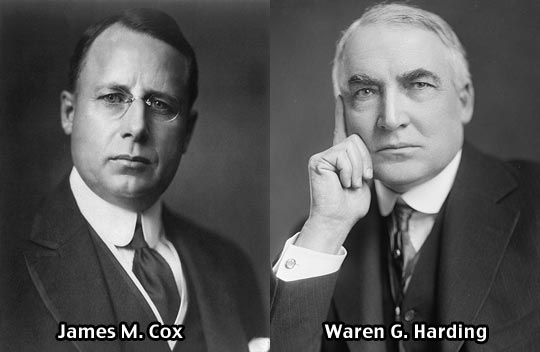Brett Favre is back.
Don’t worry though, this time he’s bringing his gunslinging mentality to journalism. He just can’t stay away. Here’s video of Favre making his college football broadcasting debut:
http://www.youtube.com/watch?v=8UrJamSz34Q

Brett Favre is back.
Don’t worry though, this time he’s bringing his gunslinging mentality to journalism. He just can’t stay away. Here’s video of Favre making his college football broadcasting debut:
http://www.youtube.com/watch?v=8UrJamSz34Q
Presentations and graphics have obviously improved with greater technology. But I don’t think we truly realize how much they invade our everyday lives.
Why else does Facebook change its layout so much? Why do I prefer Facebook over Google+? It’s the presentation.
We know that it’s not just what it is, but what it looks like.
TVs are no longer HD, they’re 3-D.
We’ve even accepted images for words. I wasn’t surprised to see an ad for a movie that said to like it on Facebook. I was surprised to see Like and Facebook were symbols that enough of the population knew what the ad meant.

 Graphics are the new messages. If they’ve become so integrated into our society today, what does that mean for the future? Will it be so full of logos that we won’t even need words anymore? Only time will tell.
Graphics are the new messages. If they’ve become so integrated into our society today, what does that mean for the future? Will it be so full of logos that we won’t even need words anymore? Only time will tell.
Is it on the rise or the decline?
Is the decline of investigative journalism hurting Americas’ democracy? According to The Federal Communications Commission (FCC), the increase of fluff stories in the news are hurting our democracy. Michael Copps is one of five commissioners for the FCC. Cronkite News reports that Copps said that reporting has been sacrificed as news organizations struggle to to deliver greater returns to shareholders.
As the the article from Cronkite News says, there has been a shortage of local stories of government corruption going unreported. Big corporations are not being challenged.
 |
Cronkite News
Cronkite NewsWatch and News Service (CNS) at Arizona State University (ASU) provide full, multimedia coverage, including video reports and a daily newscast, of state news, government, politics and weather. Look to Cronkite News for breaking and in-depth coverage of critical public policy issues such as immigration/SB1070/employer sanctions, action by state agencies and the governor”s office, wildlife, the environment/climate change and Latino/Hispanic issues.
|
To counter the point made by Michael Copps, The London Evening Standard reports that in order to have an investigative journalism story matter, it must be published by a traditional media publication and not self-published. Therefore, investigative journalism is very much alive in the internet era of news.
 |
Investigative journalism is still thriving in the internet era
Journalists, so surveys regularly reveal, are not trusted by the majority of the people they affect to serve. In the public estimation of our worth, we rank alongside politicians and estate agents. It always seems to have been the case, from the dawn of newspapers onwards.
|
The video below shows a few citizens in Texas challenging Chevy to recall their Cobalts due to a power steering failure. They took Chevy on and fought for their safety. They challenge Copp’s point.
With social media sites like Facebook and Twitter, news and gossip can spread like wildfire. Sometimes, it moves a little TOO fast.
Word of mouth has been one of the most popular forms of passing news along since language arrived with homo sapiens. People would gather to learn the news of the day/week/month/year. Without the written word, however, the news was slow-moving. It could take years for one country to learn of happenings in another.
As technology changed, so did the ways in which news traveled. Stone tablets where words were etched turned to paper where words were printed. Words that were printed gave way to television and radio. And now, we have the Internet. Within seconds, news can travel across the entire world. But what happens when that news is spread a little too fast?
How radio for baseball sounded in the 1960’s.
KDKA took a risk simply by launching the experiment of commercial radio.
However, KDKA took an even bigger leap trying to broadcast a sport, baseball, America’s pastime.
| “ | Happy Monday Mason Collegiettes! Did you all have a good weekend? | |||
|
| “ | IN LOVE with this ‘sorority new member guide’ ariticle on @HCGeorgeMason! http://t.co/N0azwLKf | |||
|
| “ | Trainer, computer tech, tutor. What do these have in common? They’re all part of the top 10 highest paying campus jobs! http://ow.ly/6LMeI | |||
|
The genius behind Her Campus is undeniable. There is a huge gap in the market for 18 to 20 somethings (maybe it has something to do with our financial status…). The site’s revenue in 2010 was reported as $40,000 with a projected 2011 revenue reaching $1 million. Not too bad for a five-employee business.
 |
Stephanie Kaplan, Windsor Hanger, and Annie Wang, Founders of Her Campus
A trio of Harvard students take a campus publication online and discover a promising business opportunity. Harvard classmates Stephanie Kaplan, Windsor Hanger, and Annie Wang met in 2007 while working on Freeze, a campus publication that focused on fashion. The three were responsible for transitioning the annual print magazine to an online publication with weekly and daily content.
|
The site focuses on typical magazine topics; beauty, health, fashion, celebrities, ect. Each element of the magazine is tailored to the campus collegiette. The site offers information about scholarships, intern opportunities, and leadership positions that would rarely be found in a typical issue of Lucky or People.
| “ | It’s never too late to start that little black book – get to it! Networking is the best way to find a new… http://t.co/YUObLp3d | |||
|
| “ | On a tight budget this semester, but can’t seem to find the right job for you? Check out these surprisingly high… http://t.co/JfKvQAJR | |||
|
| “ | Cady Stokes offers advice on interviewing. http://t.co/zfXu709L | |||
|

Radio's first report was on the 1920 election. (Photo courtesy of "Google Images")
Harry P. Davis had a vision when he convinced his electric company, Westinghouse, to try something that never had been done before.
On Nov. 2, 1920, the first commercial radio station, was launched. The station is KDKA, a CBS affiliate that is still running today in Pittsburgh. The first broadcast reported on the returns of the 1920 presidential election, which Warren G. Harding would eventually go on to win.
This risk led to an explosion of radio expansion and use. Only two years later, there were 576 radio stations operating in the United States. Also, in 1922 alone, over 100,000 radios were purchased.
This helped ignite the successful economy and mood of the Roaring Twenties. It also completely changed the manner in which people found out their news.
For those who could not read, they now had an alternate source from word of mouth and a print newspaper to consume news. The audience could get a more realistic sense of the news they were obtaining with a direct human element involved.
Radio’s emergence would help set the stage for the Great Depression, where citizens gathered as one to listen to President Franklin Delano Roosevelt’s, “fireside chats,” showing the influence radio would have on the nation’s mindset.
Happy birthday, Google! Just a few short years and you’ll be borrowing the car and taking your gal YouTube out for a malt and a drive-in movie (kids still do that, right?)
So you’re a teenager now. What’s on your wish list for the Big 1-3? A new smart phone? A trip to… Kansas?
Kansas City, Kansas? Read More…